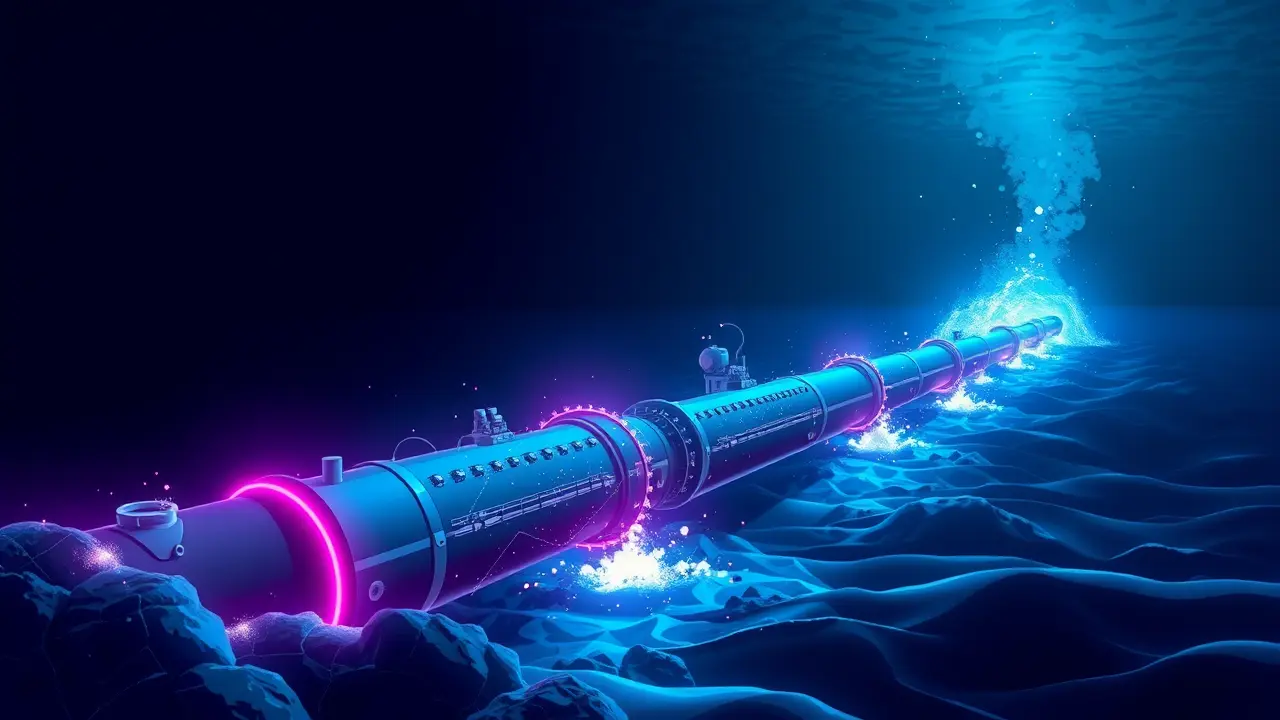Polish Court Weighs Nord Stream Suspect Extradition to Germany
The legal proceedings unfolding in a Polish courtroom regarding the potential extradition of a suspect linked to the September 2022 Nord Stream pipeline explosions represent a critical juncture in a geopolitical whodunit that continues to send shockwaves through European energy security and international relations. On September 26, 2022, a series of deliberate undersea explosions irrevocably damaged the twin strands of the Nord Stream 1 and the newly completed Nord Stream 2 pipelines, sending vast quantities of methane bubbling to the surface of the Baltic Sea in a stark visual testament to the vulnerability of critical infrastructure.This was not a random act of sabotage; it was a strategic strike in the shadow war escalating alongside Russia's full-scale invasion of Ukraine, an event that immediately forced European nations to confront their deep-seated dependency on Russian natural gas and accelerate a painful, costly, but necessary decoupling. The identity of the perpetrator remains officially unconfirmed, creating a fog of accusation and denial where Russia points fingers at the West, particularly the United States and the United Kingdom, while Western intelligence agencies and analysts largely conclude that only a state-level actor—with Russia itself being the prime suspect possessing both motive and capability—could have executed such a complex operation.The Polish court's deliberation over transferring a suspect to German authorities is therefore more than a routine judicial matter; it is a high-stakes diplomatic gambit. Germany, as the primary intended consumer of the gas flowing through these pipelines and a nation that pursued the Nord Stream 2 project despite vehement objections from Washington and Eastern European allies like Poland, has a profound interest in uncovering the truth.Its investigation is likely piecing together forensic evidence from the blast sites, financial trails, and signals intelligence. The extradition request signals Berlin's serious intent to pursue accountability, yet it also opens a Pandora's box of risks.A public trial in Germany could unveil sensitive intelligence-gathering methods, strain already frayed relations with Moscow to a breaking point, or reveal complicating details that implicate or exonerate various actors in ways that could destabilize the fragile unity of the NATO alliance. For Poland, a nation that has long warned of the geopolitical weaponization of Russian energy, the decision carries its own political weight; acquiescing to Germany reinforces a shared European security front, but any outcome that fails to definitively pin blame on the Kremlin will be viewed with deep suspicion in Warsaw.The broader context is a Europe fundamentally reshaped by this single event. The pipelines, once symbols of German-Russian economic interdependence and a cornerstone of Berlin's *Ostpolitik*, are now rusting relics on the seabed, their physical destruction mirroring the collapse of that economic relationship.In the aftermath, Europe has scrambled to secure liquefied natural gas (LNG) from the United States and Qatar, build out regasification terminals with remarkable speed, and double down on renewable energy investments, a strategic pivot that has, ironically, weakened Moscow's primary lever of influence over the continent. However, the long-term consequences are still unfolding.The attack on Nord Stream established a dangerous precedent for the targeting of subsea internet cables and energy links, forcing NATO to significantly enhance its maritime patrols in the Baltic and North Seas. It has also left a lingering question of deterrence: if a state actor can attack such infrastructure with apparent impunity, what prevents future attacks? The legal process in Poland, therefore, is a single thread in a much larger tapestry of hybrid warfare, energy realpolitik, and the ongoing struggle to define a new European security architecture in the wake of both a land war and an underwater one. The evidence presented, the court's ultimate ruling, and the subsequent German judicial process will not merely determine the fate of one individual; they will provide crucial, if incomplete, pieces to a puzzle that will define transatlantic security for decades to come, influencing everything from future energy contracts to military posture in the Baltic region.
MA
Mateusz Kowalski123k2 days ago
wow this is such a tangled mess, we're seeing the same kind of geopolitical knots play out in different regions and it's just frustrating tbh
0
JA
Jamie Wilson123k2 days ago
wait what this is all so wild and confusing tbh like how does anyone even know what's real anymore
0
